Rob Sissons, East Midlands health correspondent

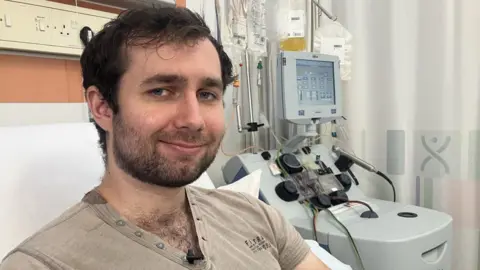 BBC
BBC
Jordan was one of the first donors to give stem cells at the new centre, which collects cells for NHS transplants from people across the UK
The UK's first stem cell collection centre strictly dedicated to transplants has started welcoming donors.
The Anthony Nolan Cell Collection Centre, based at Nottingham's Queen's Medical Centre (QMC), will help more people across the UK donate potentially life-saving cells to patients with blood cancers and disorders.
The Anthony Nolan charity said the centre would create 1,300 new donation slots a year, helping to tackle a "longstanding global shortage of cell collection facilities".
Jordan, from London, said he was "proud" to be one of the first to donate. "I am really happy because today I could save someone's life," he added.
The centre will be run by the Anthony Nolan charity, in partnership with the National Institute for Health and Care Research (NIHR) Nottingham Clinical Research Facility.
Jordan was called by the charity to donate stem cells after analysis of a saliva sample he gave nine years ago, when he signed up to the stem cell register at a freshers' fair at the University of Exeter, proved to be a good match to a stranger.
"It is such an easy thing to do to help someone else," he said.
"I'm not the biggest fan of needles, but I'm happy to do anything if it helps another person."
'Special' feeling
Anthony Nolan has more than 900,000 people on its own register of potential donors.
It said a "longstanding global shortage of cell collection facilities" meant some patients did not receive a transplant at the best time.
Growing demand for cell-based treatments has put donation facilities at some NHS and private hospitals under more pressure than ever, it added.
According to its own data, in 2022-23, only a fifth of donors on the UK registry were able to donate on the date requested by the patient's medical team due to capacity issues.
Not having a transplant at the right time can have an irreversible impact on a patient's mental and physical health, said Anthony Nolan, and sometimes leave them in a life-threatening condition.
The charity said the chance of being matched from its UK-wide register was one in 800, in the first five years of being on the register.
Jordan said it felt "special" to help a stranger, for whom a stem cell transplant might be their only hope of staying alive.
"I like to think if something were to happen to me, then someone would be willing to do the same," he added.
What is a stem cell transplant?
A stem cell or bone marrow transplant is a life-saving treatment for thousands of patients with blood cancers and disorders. It replaces damaged blood cells with healthy ones.
Stem cells are special cells produced by bone marrow, a spongy tissue found in the centre of some bones, that can turn into different types of blood cells.
Donation is simple, Nicola Alderson - chief operating officer at Anthony Nolan - said.
"You are put on to a machine that has a needle in both arms," she said. "The blood goes through the machine which takes out the stem cells and puts the rest of the blood back through."
The process usually takes about five hours. Once the cells are collected from the bloodstream, they are typically transplanted into the recipient within 72 hours.
Anthony Nolan said any contact between a donor and patient depended on privacy regulations of the patient's country, and was led by the patient.
UK rules allow direct contact from two years since the last transplant, although some overseas registries may not allow contact until five years post-donation.

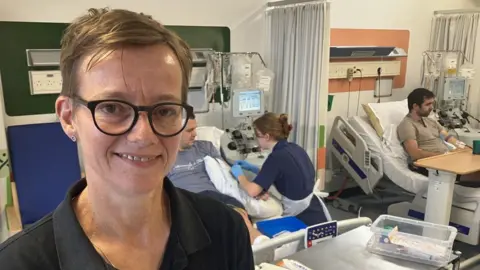
Nicola Alderson, chief operating officer at Anthony Nolan, said the new centre should be a "game-changer"
Anthony Nolan co-ordinates transplants for the NHS, collecting and delivering cells to hospitals across the UK and sending cells abroad. It is involved in more than 1,000 UK transplants between donors and unrelated recipients each year and sends cells abroad to another 300 patients.
Ms Alderson said prior to the new centre, the charity had struggled to get stem cells collected "at the time the clinical community need us to".
"It is only one in five times where we have been able to get collections to donors on the day doctors have asked for them," she added.
She said when recipients saw a bag of stem cells, "it is an incredible moment".
"Ultimately, that small bag can save someone's life. It is a bag of magic," she added.
"We will make sure [donors] have the best experience at our new centre."
The centre has been part-funded by Omaze, which partnered with Anthony Nolan and raised £3.7m through a house prize draw in June.
It is estimated the money will help fund the centre's work for 18 months.
Kathryn Fairbrother, director of clinical operations for research and innovation at Nottingham University Hospitals (NUH) NHS Trust - which runs the QMC - added: "There are opportunities for Anthony Nolan and for ourselves to do research that we wouldn't have done before."
One of the research projects planned involves using stem cells to treat liver disease.

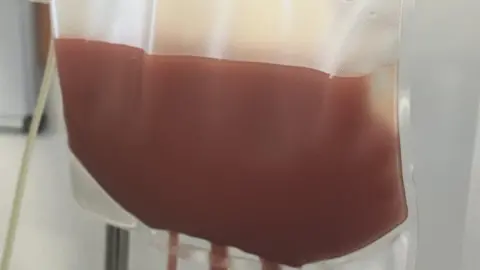
A bag of stem cells - like Jordan's pictured here - has been described as a "bag of magic"
Stem cell transplant recipients, like Raj, will benefit from the new centre.
The 32-year-old, a University of Liverpool student, received a stem cell transplant in Leicester in 2020 after being diagnosed with a rare blood cancer called myelofibrosis.
His cells came from an anonymous donor in Germany.
"I sent him an anonymous thank you letter but I haven't tried to get in direct contact yet. I'd like to," Raj said.
"It took me about a year and a half to two years to recover. It took quite a long time, and I was off sick from work for about a year."
Raj added: "The Nottingham development is a brilliant set-up.
"Being able to be more efficient collecting and delivering stem cells to patients who don't have time to wait is fantastic."

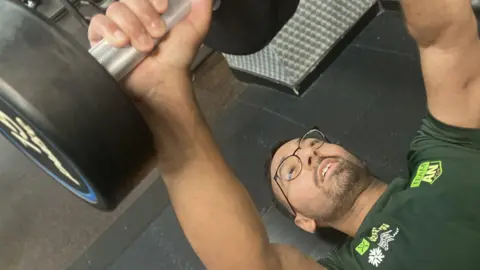
Five years on from his transplant, Raj is still in remission from cancer and has welcomed the new centre
Raj would like to see more people sign up to become potential donors at Anthony Nolan.
They need to be aged 16 to 30 years old to register, and can stay on as a potential donor until the age of 61.
Potential donors send off a cheek swab sample and wait to see if they are a match for anyone.
"We need more. It is the ultimate act of kindness," Raj added.

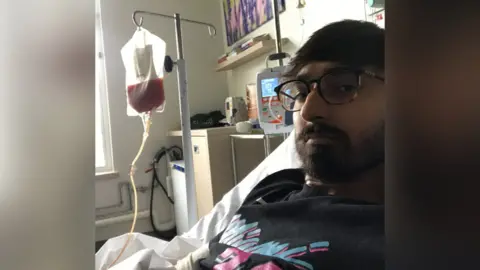 Supplied
Supplied
Raj pictured having stem cells infused into his bloodstream at the Leicester Royal Infirmary

 German (DE)
German (DE)  English (US)
English (US)  Spanish (ES)
Spanish (ES)  French (FR)
French (FR)  Hindi (IN)
Hindi (IN)  Italian (IT)
Italian (IT)  Russian (RU)
Russian (RU)  3 weeks ago
3 weeks ago
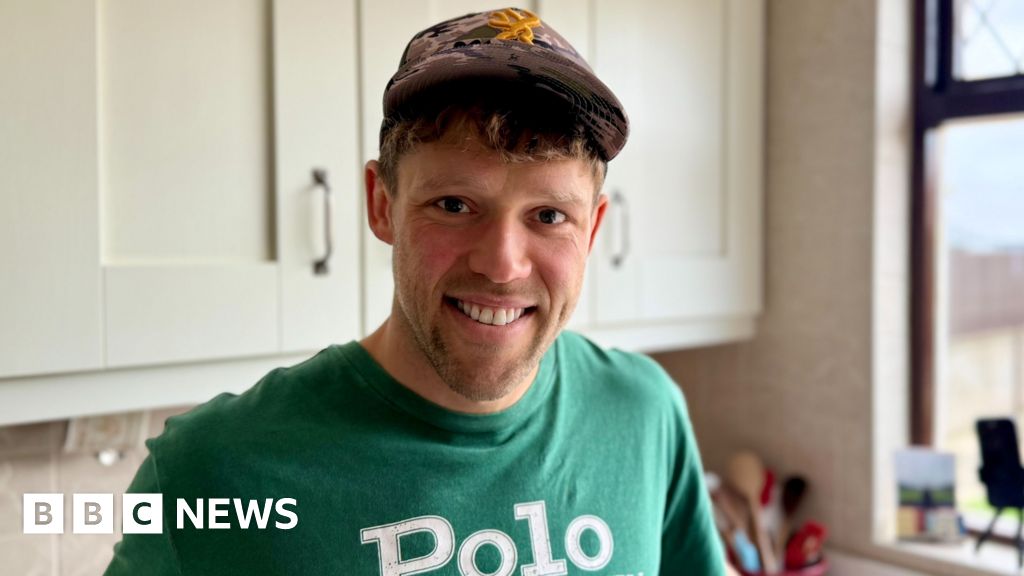
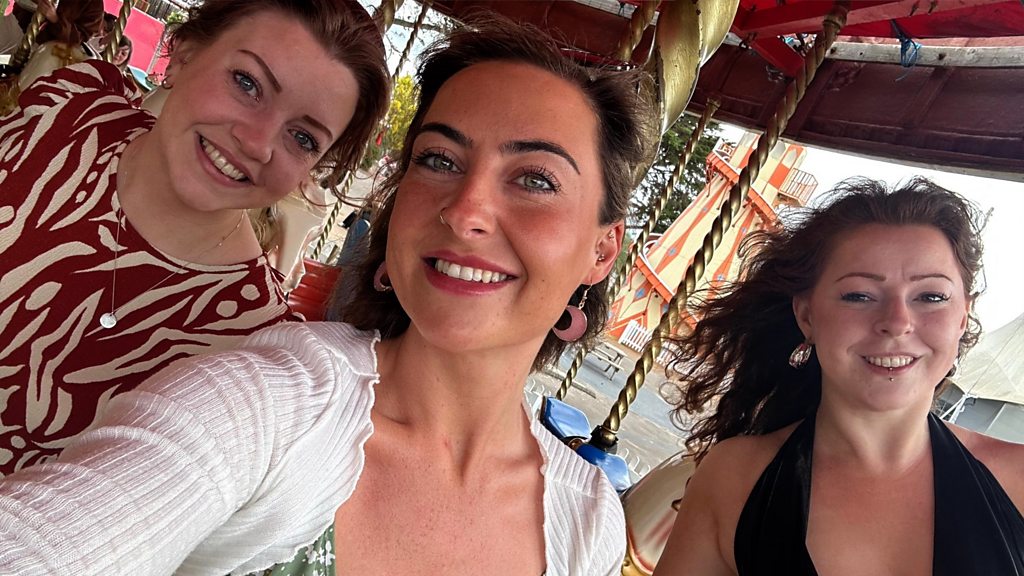
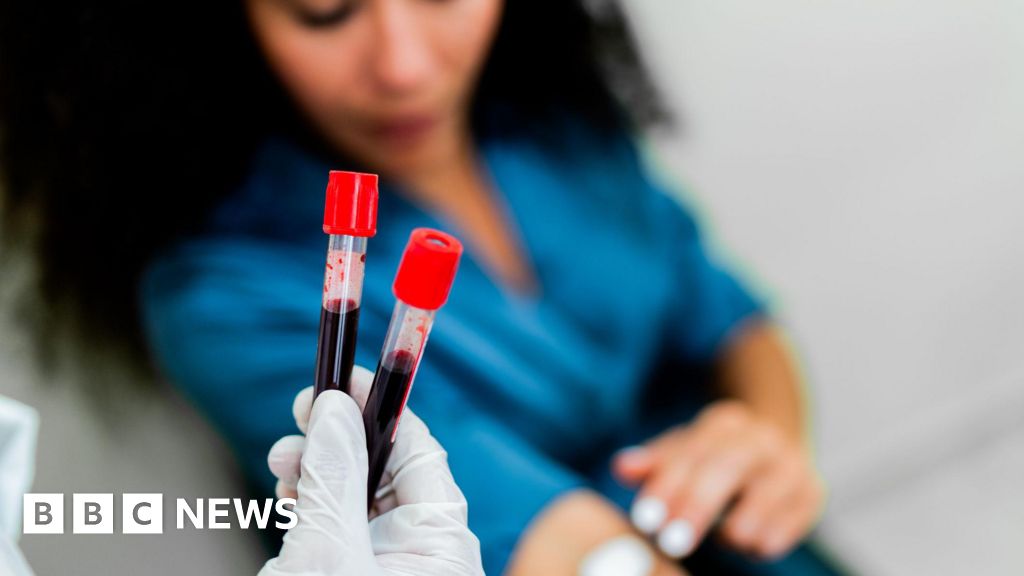
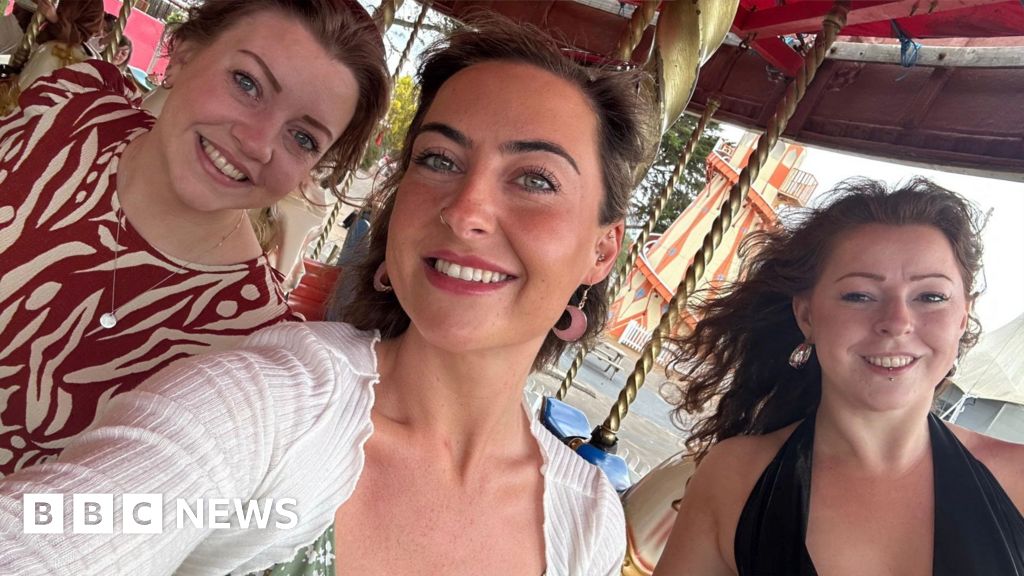
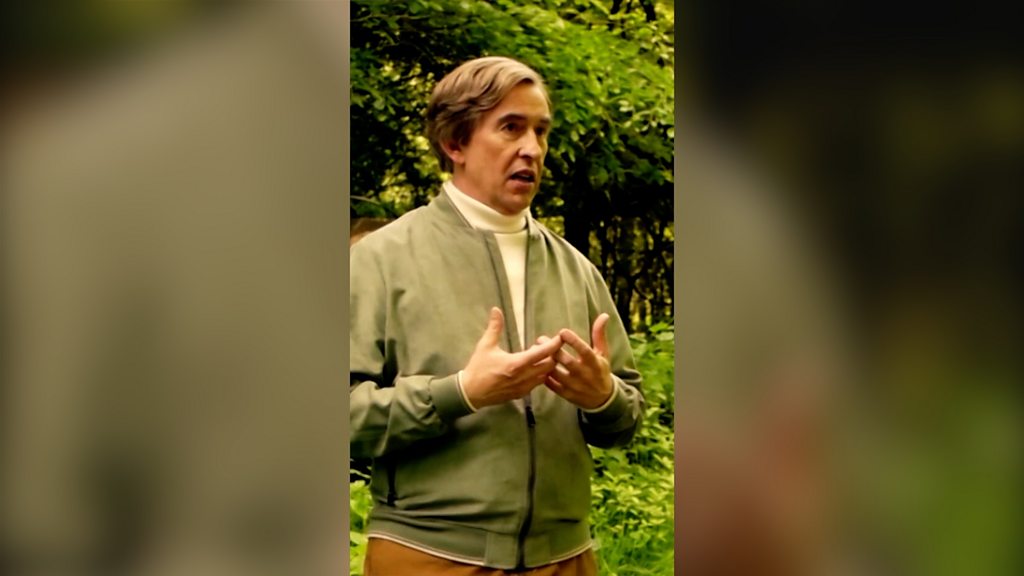

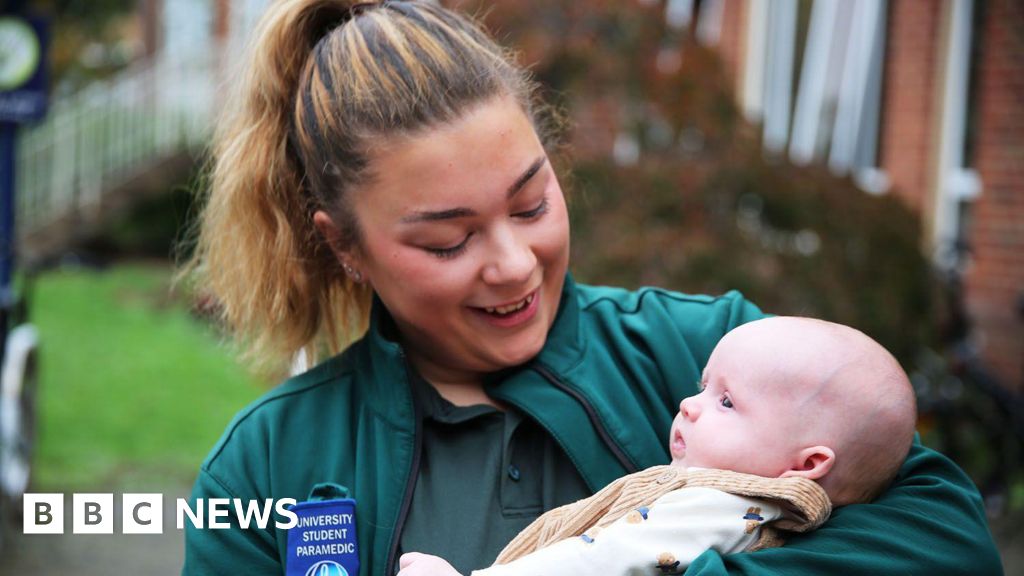
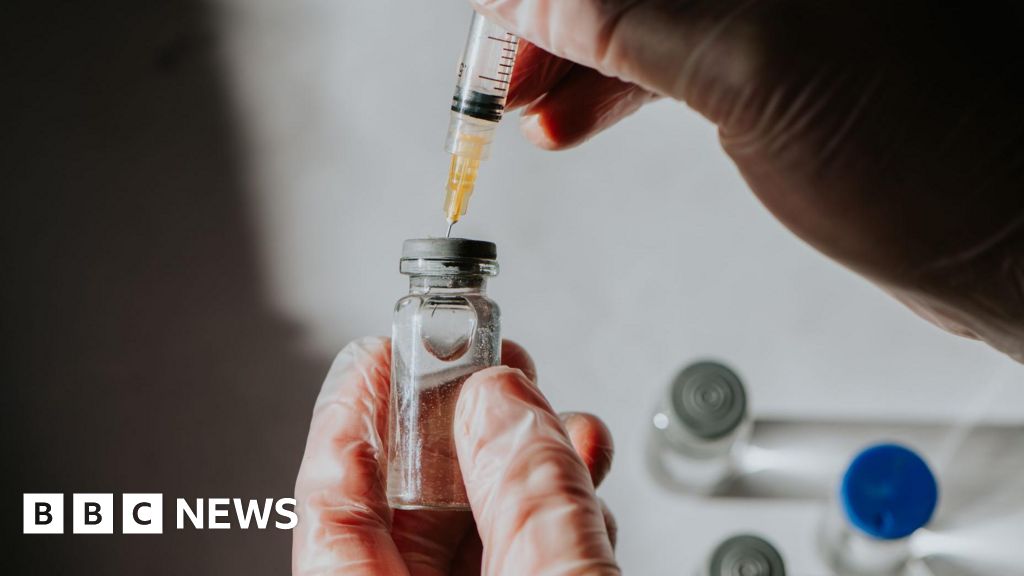
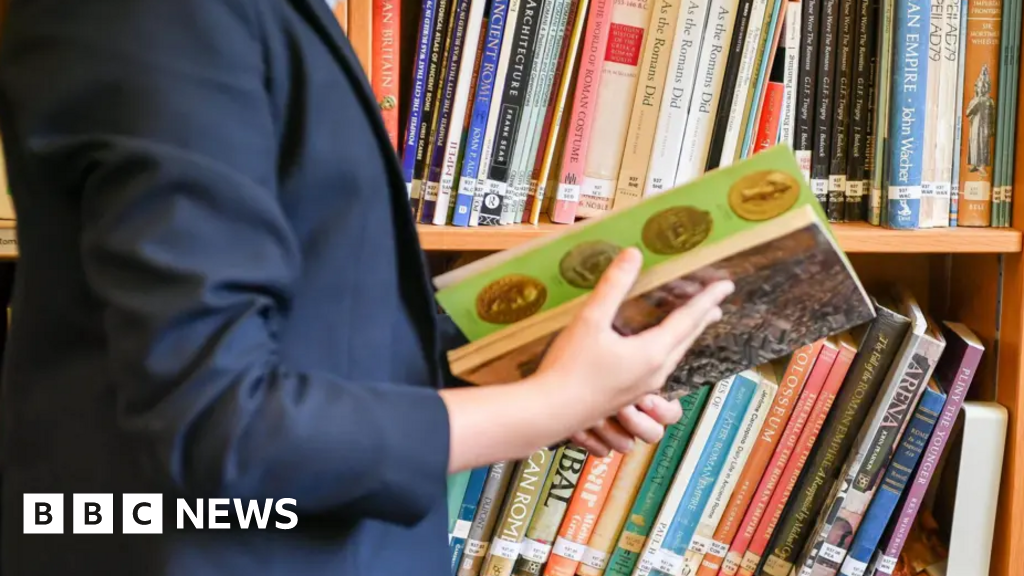
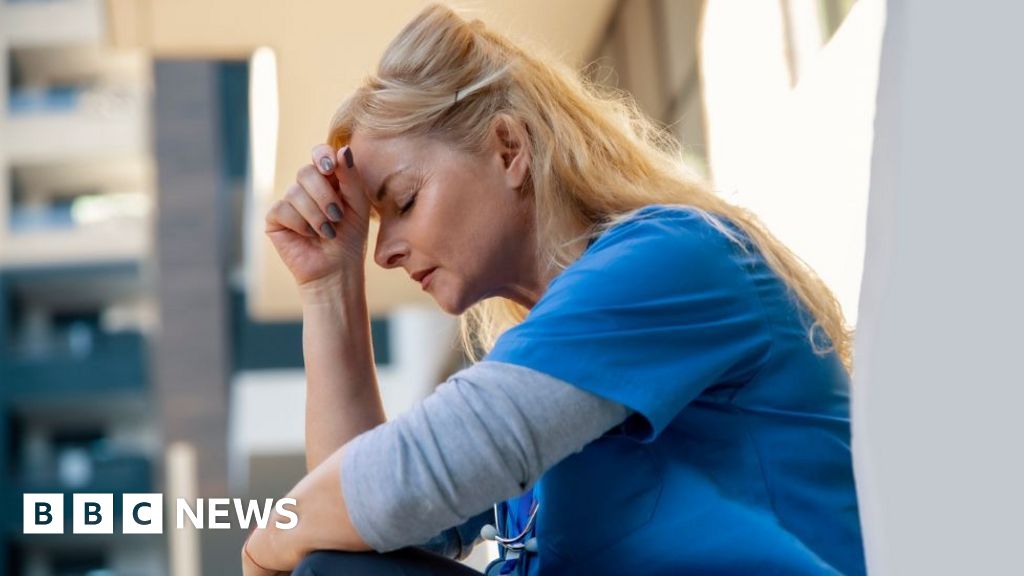
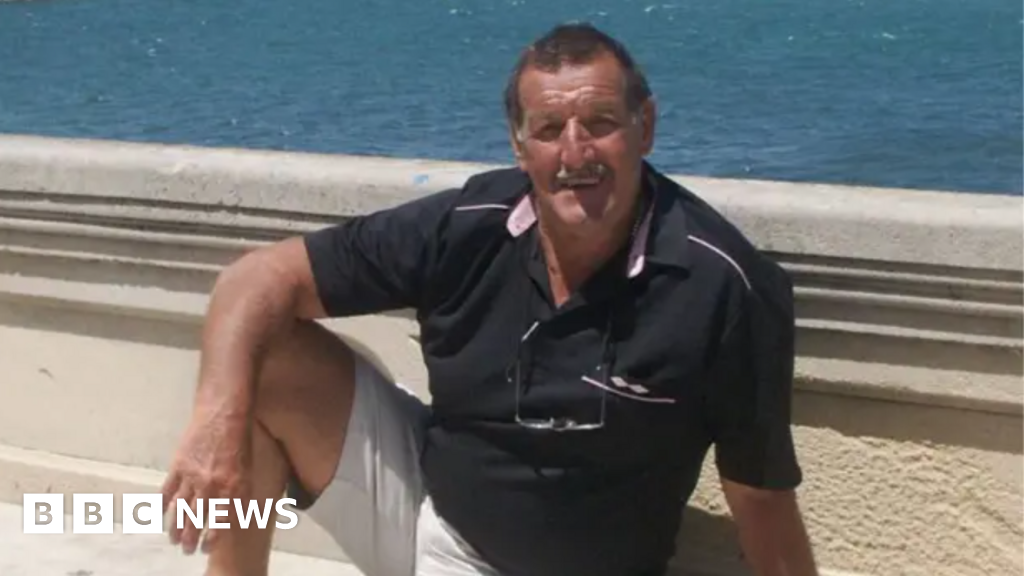
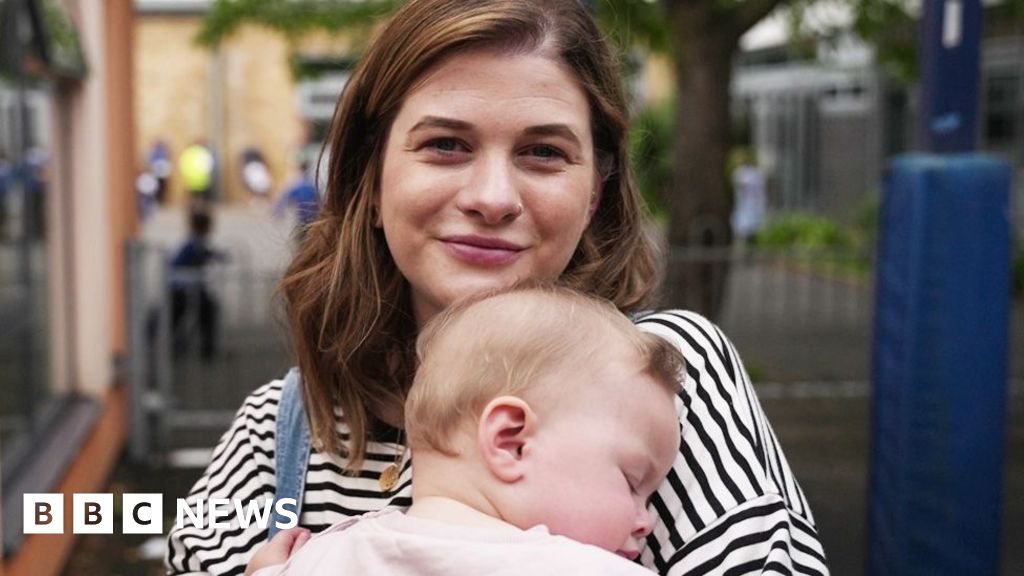



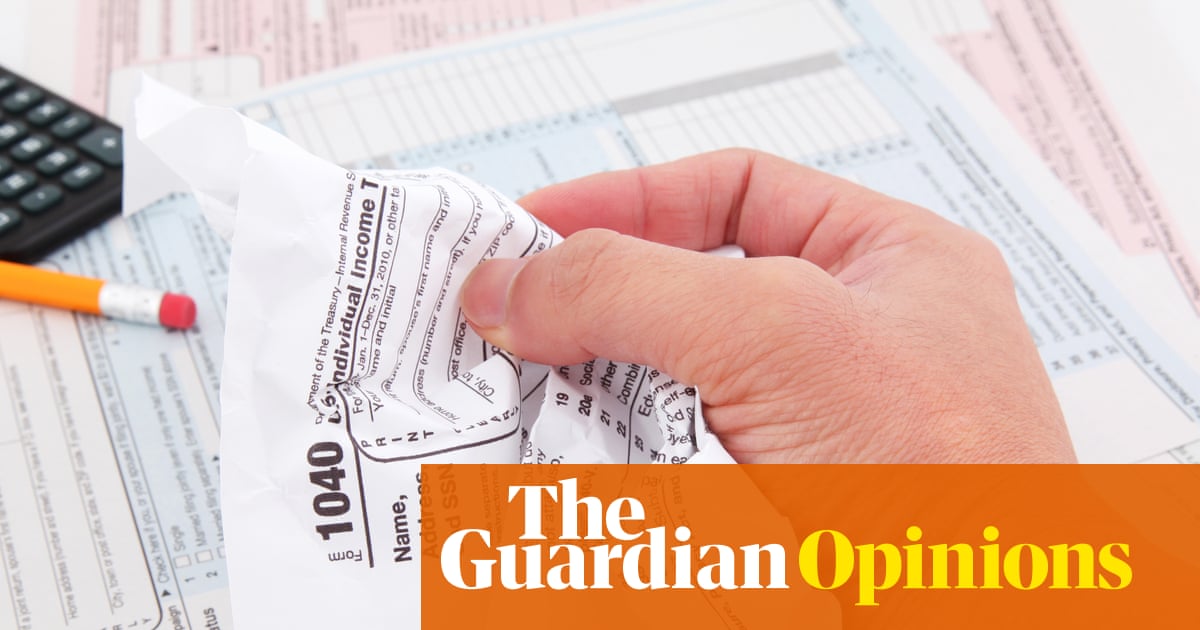








Comments